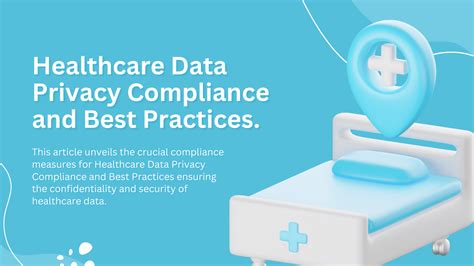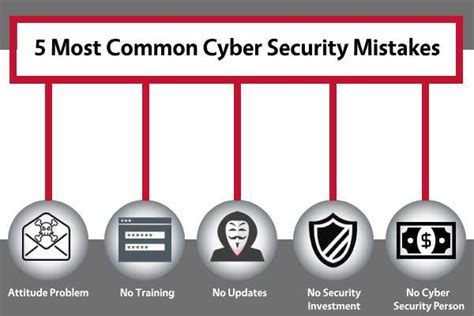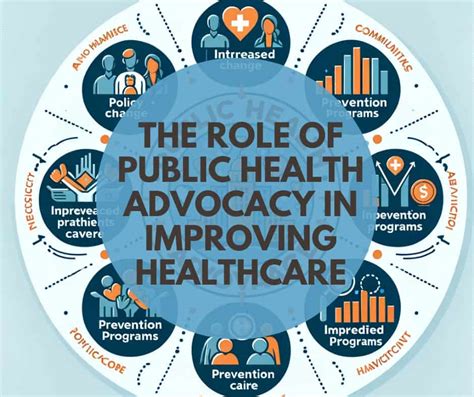Intro
Protect your sensitive health information from unauthorized access. Learn 5 ways to safeguard your health care privacy, including securing medical records, being cautious with online health services, and understanding HIPAA rights. Discover how to maintain confidentiality and prevent medical identity theft in this informative guide.
Protecting your health care privacy is crucial in today's digital age, where sensitive medical information can be easily accessed and shared. With the increasing use of electronic health records (EHRs) and online health portals, it's essential to take proactive steps to safeguard your personal health information. In this article, we'll explore five ways to protect your health care privacy and ensure that your medical data remains confidential.

Understand Your Rights Under HIPAA
The Health Insurance Portability and Accountability Act (HIPAA) is a federal law that sets standards for protecting the confidentiality, integrity, and availability of protected health information (PHI). Understanding your rights under HIPAA is the first step in protecting your health care privacy. You have the right to:
- Request access to your medical records
- Request corrections to your medical records
- Receive a copy of your medical records
- Request restrictions on the use and disclosure of your PHI
- File a complaint with the U.S. Department of Health and Human Services (HHS) if you believe your rights have been violated
Know Who Has Access to Your Medical Records
It's essential to know who has access to your medical records and why. Your health care provider, insurance company, and other authorized individuals may have access to your records. However, it's crucial to ensure that only authorized individuals have access to your PHI. You can:
- Ask your health care provider about their policies and procedures for protecting your PHI
- Request a list of individuals who have accessed your medical records
- Review your medical records regularly to ensure accuracy and completeness
Be Cautious When Sharing Your Medical Information Online
In today's digital age, it's easy to share your medical information online, but it's essential to be cautious when doing so. Avoid sharing your medical information on social media or online forums, as this can compromise your health care privacy. Instead:
- Use secure online portals to access your medical records and communicate with your health care provider
- Use encrypted email or messaging services to share your medical information with authorized individuals
- Be wary of online scams and phishing attempts that may compromise your PHI

Monitor Your Medical Records for Errors
Errors in your medical records can compromise your health care privacy and lead to incorrect treatment. It's essential to monitor your medical records regularly to ensure accuracy and completeness. You can:
- Request a copy of your medical records from your health care provider
- Review your medical records carefully to identify errors or discrepancies
- Report any errors or discrepancies to your health care provider immediately
Use a Health Care Proxy or Power of Attorney
A health care proxy or power of attorney can help protect your health care privacy by authorizing someone to make medical decisions on your behalf. This can be especially useful if you're unable to make decisions for yourself due to illness or injury. You can:
- Appoint a trusted family member or friend as your health care proxy
- Specify the scope of their authority and the types of decisions they can make on your behalf
- Review and update your health care proxy or power of attorney regularly to ensure it remains accurate and up-to-date
Stay Informed About Health Care Privacy Laws and Regulations
Staying informed about health care privacy laws and regulations can help you protect your health care privacy. You can:
- Visit the HHS website to stay up-to-date on the latest health care privacy laws and regulations
- Review your state's health care privacy laws and regulations
- Participate in health care advocacy groups to stay informed about health care privacy issues

Protecting your health care privacy requires proactive steps and a commitment to staying informed. By understanding your rights under HIPAA, knowing who has access to your medical records, being cautious when sharing your medical information online, monitoring your medical records for errors, using a health care proxy or power of attorney, and staying informed about health care privacy laws and regulations, you can safeguard your personal health information and ensure that your medical data remains confidential.
We encourage you to take an active role in protecting your health care privacy and to share this article with others who may be interested in learning more about this important topic.
What is HIPAA?
+HIPAA is the Health Insurance Portability and Accountability Act, a federal law that sets standards for protecting the confidentiality, integrity, and availability of protected health information (PHI).
Who has access to my medical records?
+Your health care provider, insurance company, and other authorized individuals may have access to your medical records. However, it's essential to ensure that only authorized individuals have access to your PHI.
How can I protect my medical information online?
+Avoid sharing your medical information on social media or online forums, and use secure online portals to access your medical records and communicate with your health care provider.
